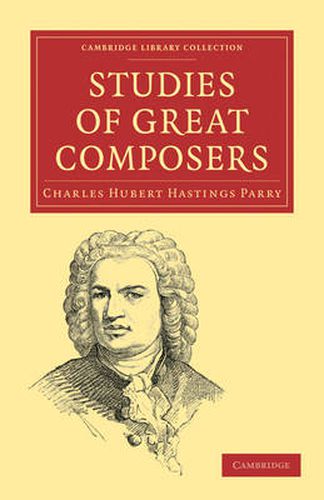Readings Newsletter
Become a Readings Member to make your shopping experience even easier.
Sign in or sign up for free!
You’re not far away from qualifying for FREE standard shipping within Australia
You’ve qualified for FREE standard shipping within Australia
The cart is loading…






C. Hubert H. Parry (1848-1918), knighted in 1902 for his services to music, was a distinguished composer, conductor and musicologist. In the first of these roles he is best known for his settings of Blake’s ‘Jerusalem’ and the coronation anthem ‘I was glad’. He was an enthusiastic teacher and proselytiser of music, believing strongly in its ability to widen and deepen the experience of Man. This survey of European composers from Palestrina to Wagner was intended for the interested amateur, and begins with a rapid and somewhat dismissive survey of European music up to the Renaissance: each composer subsequently discussed is placed in the context of his time, and in a vigorously expressed conclusion, Parry argues for an aesthetic which recognises that some composers are great, others second-rate and yet others downright bad, and that it is essential that the listening public is able to make this distinction.
$9.00 standard shipping within Australia
FREE standard shipping within Australia for orders over $100.00
Express & International shipping calculated at checkout
C. Hubert H. Parry (1848-1918), knighted in 1902 for his services to music, was a distinguished composer, conductor and musicologist. In the first of these roles he is best known for his settings of Blake’s ‘Jerusalem’ and the coronation anthem ‘I was glad’. He was an enthusiastic teacher and proselytiser of music, believing strongly in its ability to widen and deepen the experience of Man. This survey of European composers from Palestrina to Wagner was intended for the interested amateur, and begins with a rapid and somewhat dismissive survey of European music up to the Renaissance: each composer subsequently discussed is placed in the context of his time, and in a vigorously expressed conclusion, Parry argues for an aesthetic which recognises that some composers are great, others second-rate and yet others downright bad, and that it is essential that the listening public is able to make this distinction.